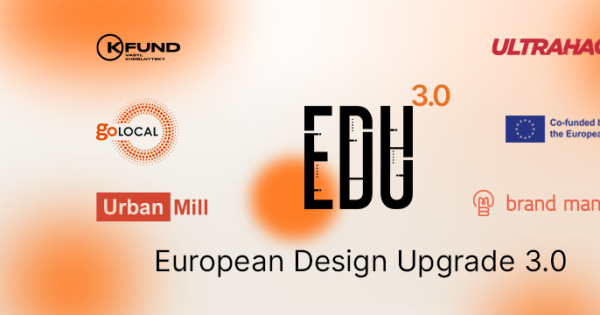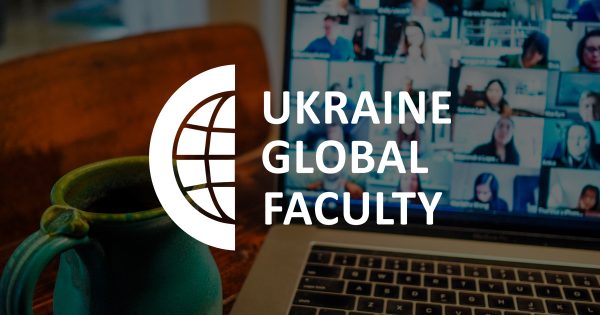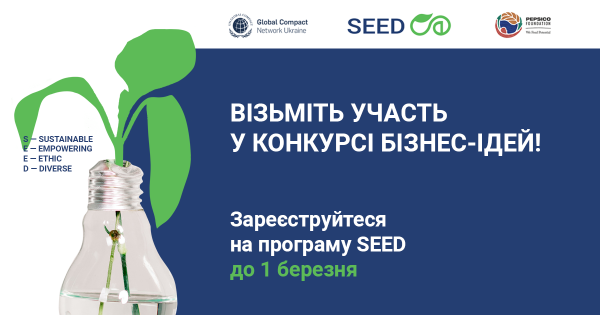Mentoring in the DNA of the leader
11 October, 2021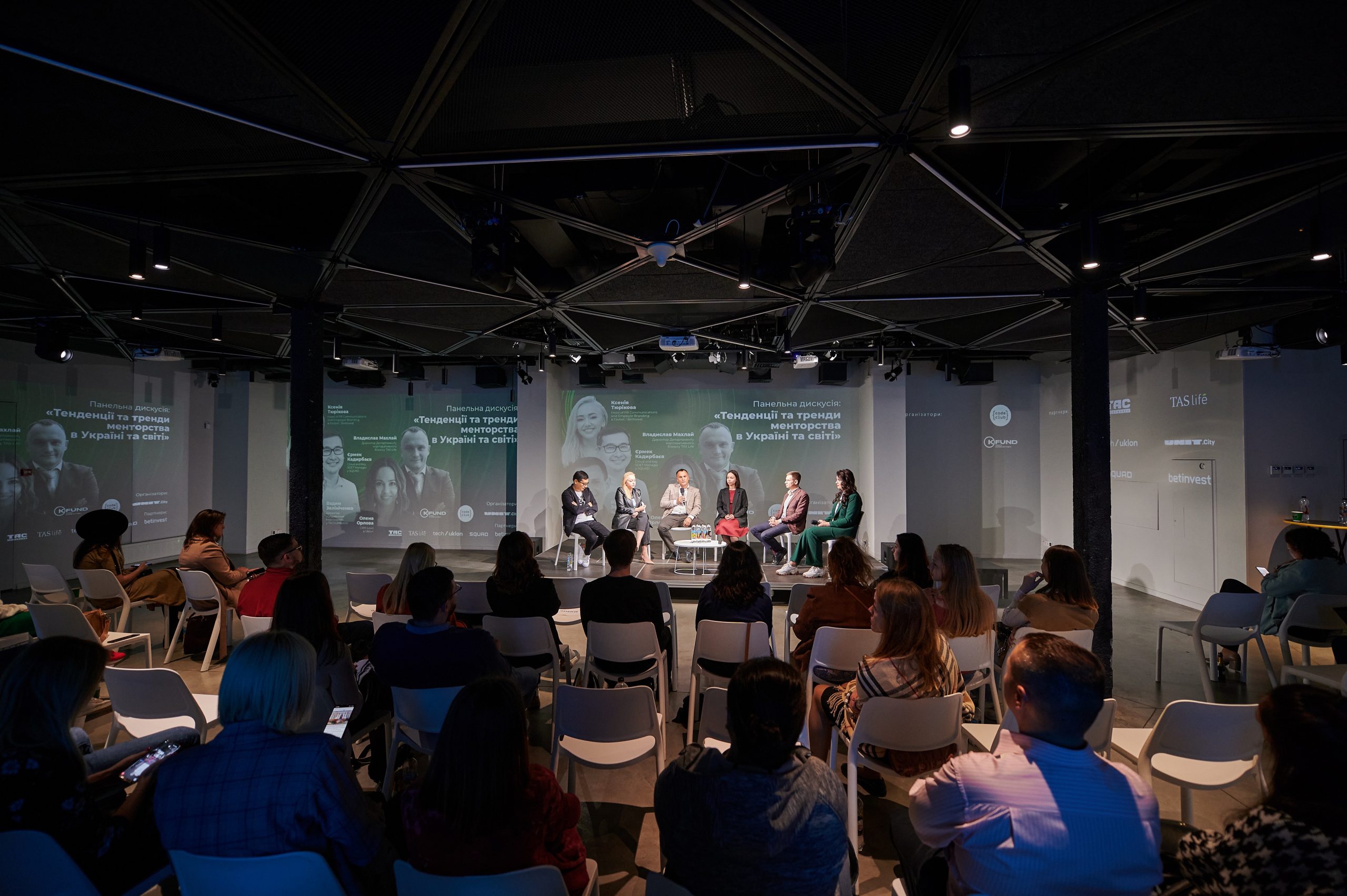
On October 2, in the innovation park UNIT.City, an all-Ukrainian meetup “Mentoring in your DNA” was held, organized by the Vasyl Khmelnytsky Foundation K.FUND and the all-Ukrainian network of free coding clubs for children and adolescents Code Club UA.
Victoria Tigipko, Founder and Managing Partner of TA Ventures, President of ICLUB Global and Founder of Code Club UA, welcomed the participants:
Alina Shcherbina, head of the all-Ukrainian network of free coding clubs for children and adolescents Code Club UA, said that over 8 years of the initiative’s existence, the project has attracted 2,500 mentors. Code Club UA develops an eco-culture of mentoring. At the same time, the curators will also face problems, for example, mentors at the last moment may forget about the lecture or do not respond to messages for a long time. Top mentor fakups are:
mysterious mentors (disappear completely the day before class);
reluctant mentors (among the course they begin to refuse mentoring)
forgetful mentors (they forget about their lectures, although they received a lot of reminders).
It is very important, she added, to help people become mentors, since many have the necessary competencies but are afraid to start teaching others. That is why Code Club UA has launched a special program “Easy Steps to Mentoring at Code Club”.
“It is very pleasant that today there is an event dedicated to mentoring, and it is here, in the UNIT.City innovation park. Volunteer opportunities need to be actively integrated into the educational process, change the education system as a whole, so that Ukraine turns from an outsourcing country into a country that has created cool companies and start-ups".
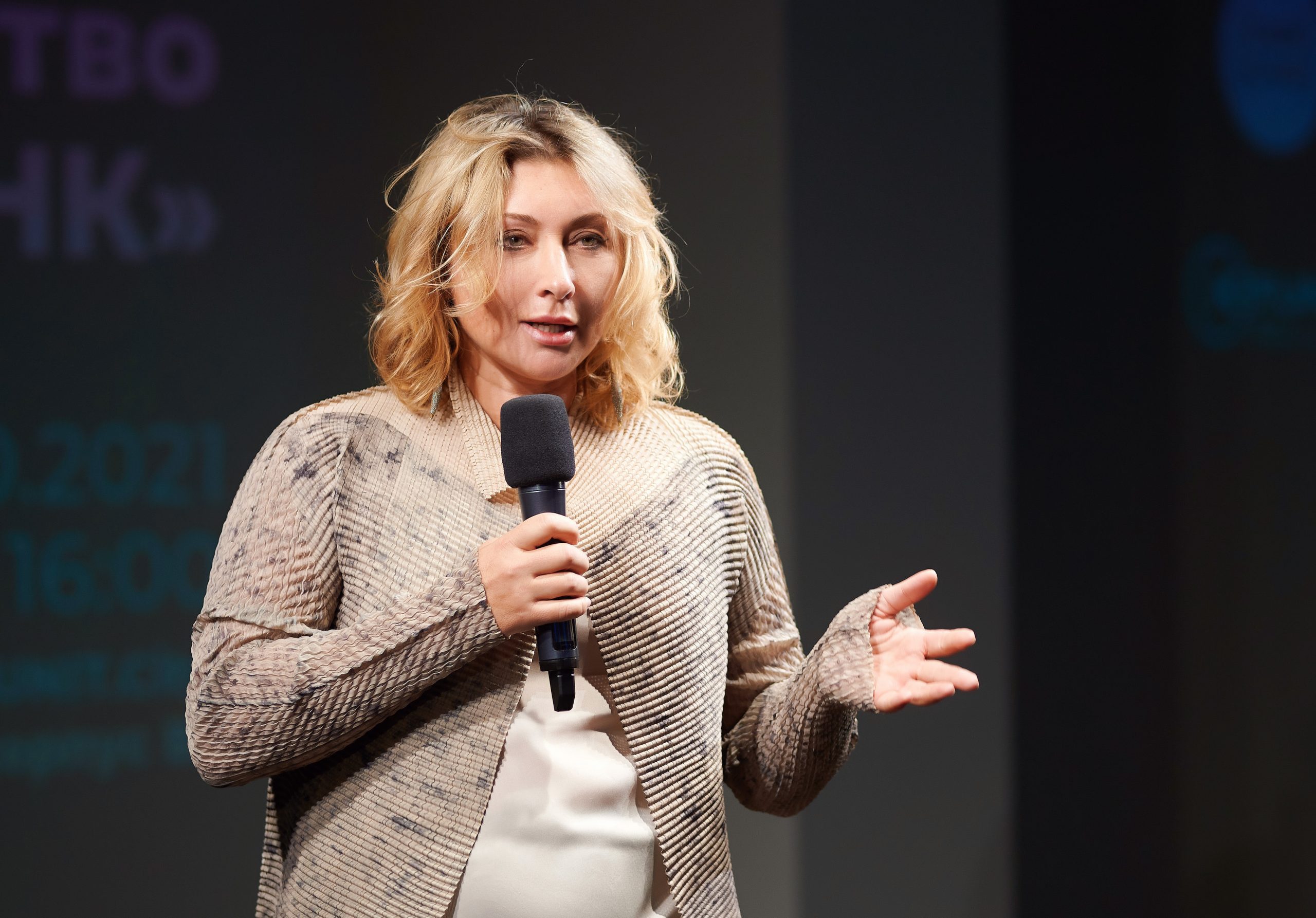
Lydia Pashchuk, President of the K.FUND Foundation, Head of the School of Small and Medium-Sized Businesses, Associate Professor at the Taras Shevchenko National University of Kyiv and a teacher at the Chartered Institute of Marketing, listed the key facts that testify to the benefits of mentoring in the modern world:
- 76% of organizations in Europe offer mentoring to their employees;
- 71% of Fortune 500 companies have corporate mentoring programs;
- in the United States, the income of employees who have a mentor is $ 5-20 thousand per year higher than that of the rest;
- 85% of startups admit they need a mentor.
"As for history, it was Mentor who was the name of the teacher of the son of Odysseus, known to us from the works of the ancient Greek writer Homer. Since then, a mentor is a teacher/tutor. And one of the oldest mentoring communities, Big Brothers Big Sisters of America, emerged in the early twentieth century as an attempt by young people to look after their children while their parents were at work, "said Lydia Pashchuk.

Alina Shcherbina, head of the all-Ukrainian network of free coding clubs for children and adolescents Code Club UA, said that over 8 years of the initiative’s existence, the project has attracted 2,500 mentors. Code Club UA develops an eco-culture of mentoring. At the same time, the curators will also face problems, for example, mentors at the last moment may forget about the lecture or do not respond to messages for a long time. Top mentor fakups are:
- mysterious mentors (disappear completely the day before class);
- reluctant mentors (among the course they begin to refuse mentoring)
- forgetful mentors (they forget about their lectures, although they received a lot of reminders).
It is very important, she added, to help people become mentors, since many have the necessary competencies but are afraid to start teaching others. That is why Code Club UA has launched a special program “Easy Steps to Mentoring at Code Club”.
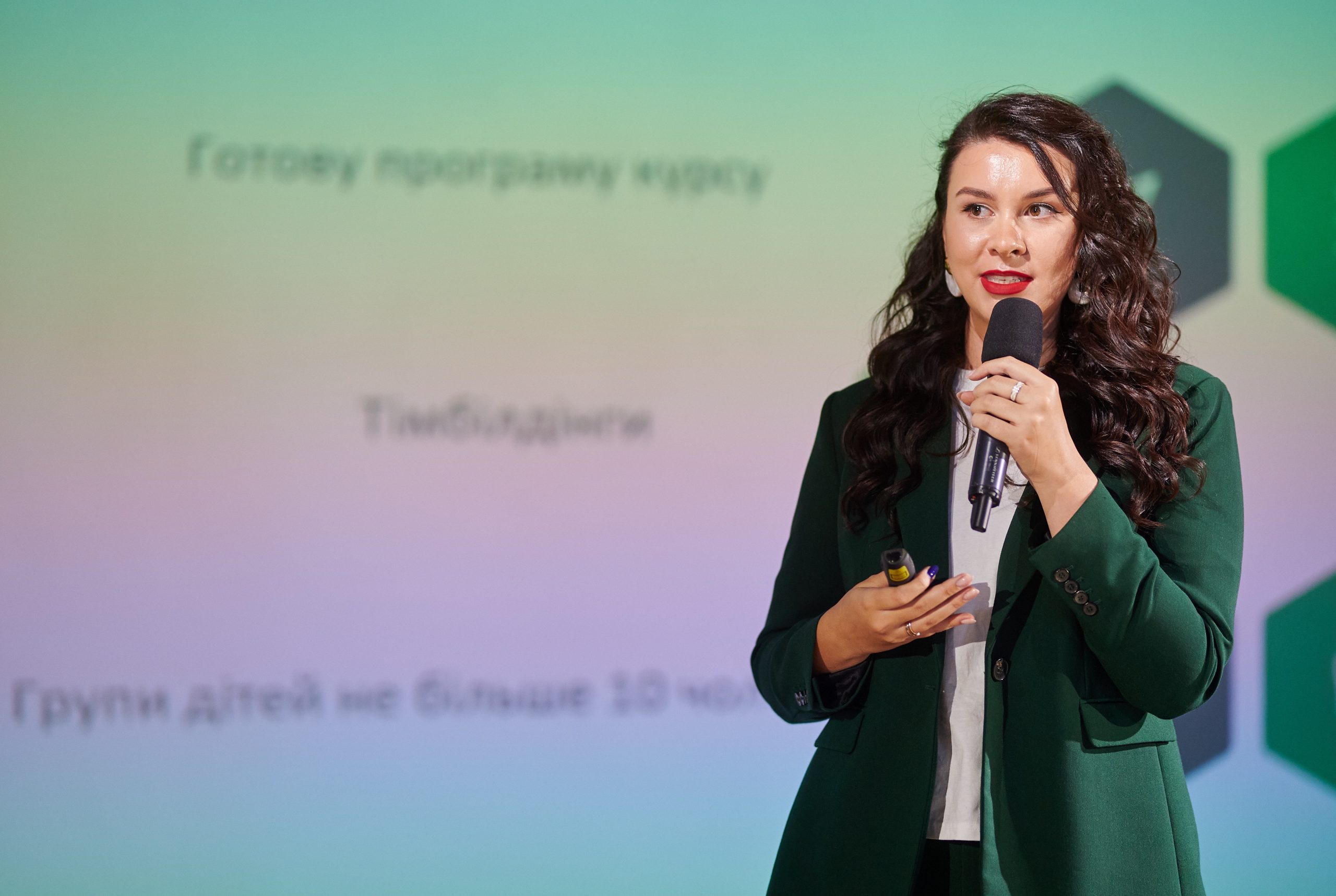
The second part of the event was devoted to a panel discussion: “Trends in mentoring in Ukraine and the world” with the participation of representatives of companies: Uklon, TASKOMBANK, TAS Life Insurance, SQUAD, Betinvest.
Mentoring helps a lot in business, for example, as it was in the Kabanchik.ua service.
"I was very impressed by the case of Kabanchik.ua. They were going through a crisis and decided to turn to a mentor. As a result, they changed their strategy and began to grow by 30%,"said Elena Orlova, head of the Uklon CRM team.
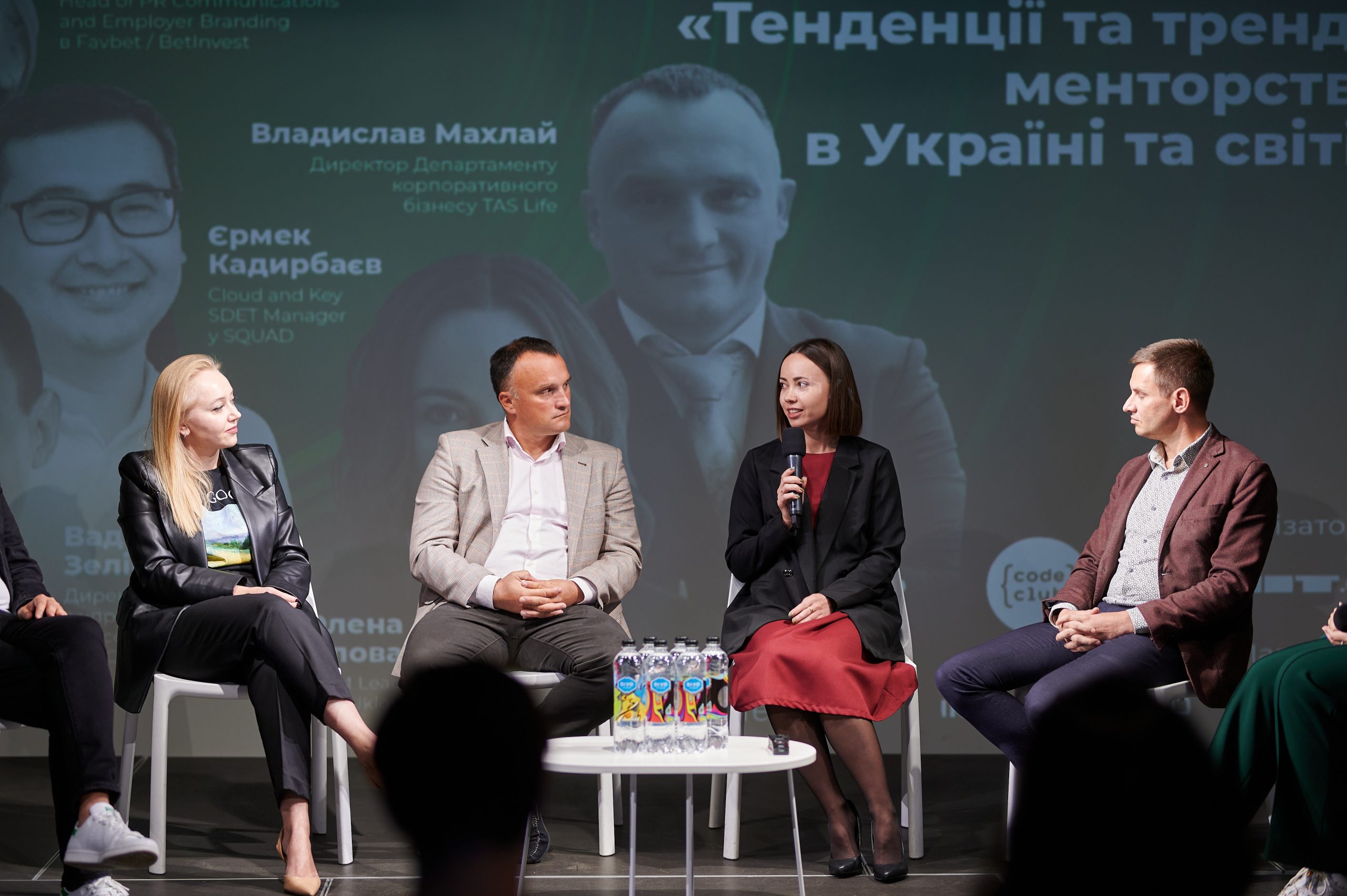
Anna Machukh, executive director of the Ukrainian Film Academy, said that only 20 permanent employees work in the team of the Odessa International Film Festival. The rest of the work is done by volunteers. From more than 1000 applicants choose up to 150. They should be distinguished by such features as initiative, flexibility, consistency. In total, the OIFF team and the Ukrainian Film Academy adhere to the principle “there is a leader, the others follow him”, and not “there is a boss, he is in charge in everything.”

Viktor Galasyuk, President of the Ukrainian Association of the Club of Rome, Corresponding Member of the World Academy of Science and Art and member of the Supervisory Board of the Kiev International Economic Forum, noted that all people can be roughly divided into two large groups: users of reality and architects. Unfortunately, the vast majority are users – 97%, while architects are less than 3%. What makes them different? Leaders, visionaries, architects, in his opinion, endowed with the following meta-competencies:
- the ability to distinguish the primary from the secondary;
- ability to focus;

"In the modern world, a person receives more information in a week than our grandparents did in a lifetime. Therefore, even such a simple thing as focusing becomes an extremely important competence,"noted Victor Galasyuk.
- persistence;
- the ability to overcome stress;
- abstract thinking;
- the ability to synthesize new judgments;
- creativity;
- emotional intelligence;
- learning and the ability to “dump” unnecessary knowledge;
- self-reflection – the ability to look at your real self, see those mental models and filters through which you look at the world and modify.
"If you manage to combine all this and direct it into activities that give you a sense of meaning, a vocation, then your resource will increase tenfold. After all, a person who has a sense of meaning, as the famous psychologist and philosopher Viktor Frankl said, is able to withstand almost everything,"summed up the speaker.


